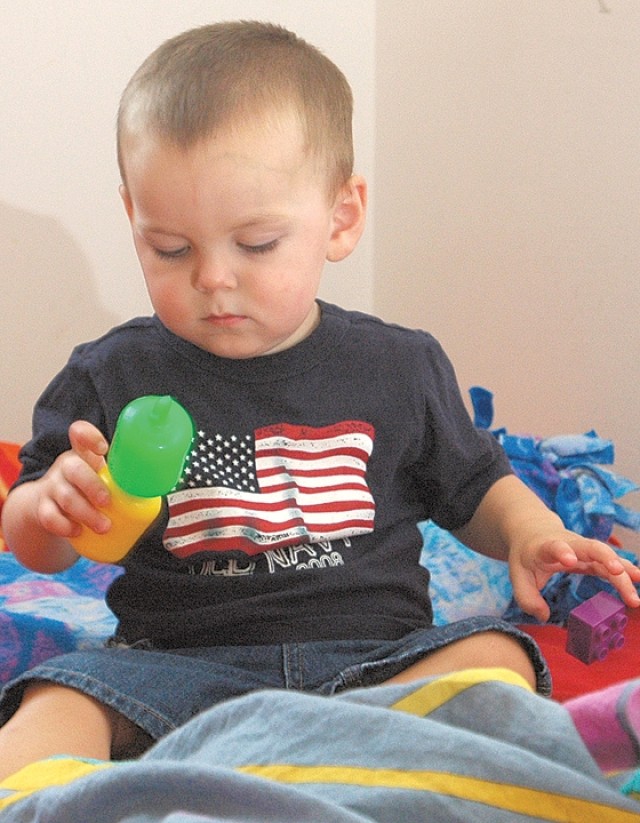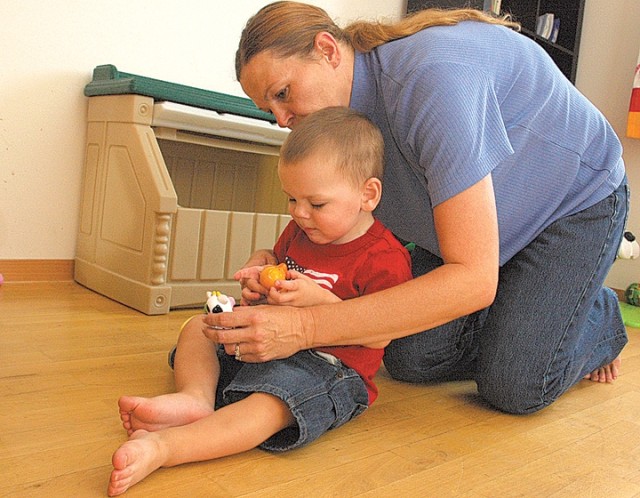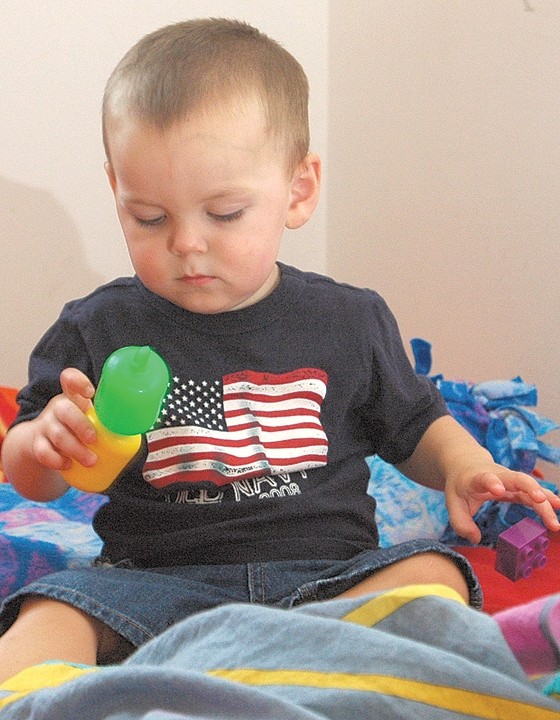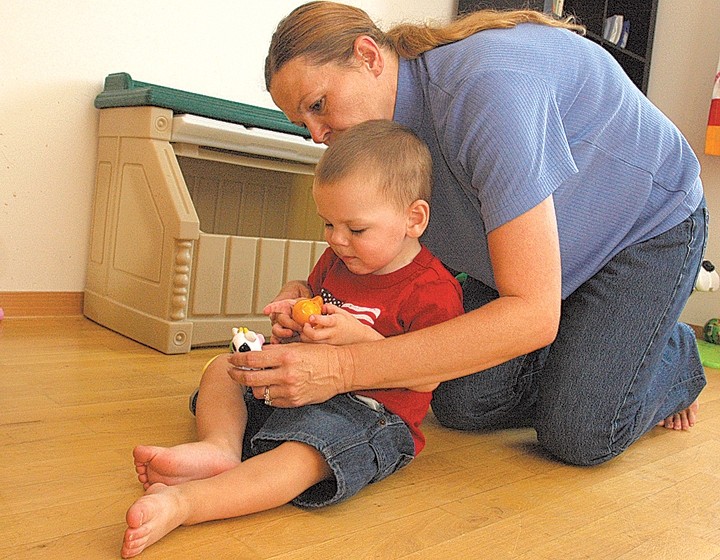HEIDELBERG, Germany -- The pay is good, but the rewards are better.
Tracy Jarvis was working at the Geibelstadt Child Development Center where she cared for 12 toddlers - two were autistic. She recalled having a bad day because of office politics and she returned to her room in time for her children to pick up their toys.
While working with one of her autistic children, who are normally very introverted, the child began to sing the clean up song, a first for the child.
"They knew I was having a bad day," said Jarvis, now a respite care provider in Heidelberg. It's those breakthroughs that make her job worthwhile.
"If you can't get connected with the kids, you shouldn't be in this field," Jarvis said.
When Jarvis and her family moved to Heidelberg after the closing of Geibelstadt, Jarvis wanted to be a family child care provider, but because her husband is a contractor and they live off post, she was only able to be a substitute provider.
During the FCC training, someone came in to talk about the Army's respite care program.
Her interest was piqued.
Respite care provides time off for family members who care for someone with a special need, either physical or emotional, according to a Heidelberg Army Community Service brochure.
Now she works between 25 and 30 hours per week with three families - two families have a child that was born prematurely; the third family has autistic twins.
All of the children Jarvis works with, who she refers to as 'my' kids, are under the age of 3.
Jarvis said that's the best age to work with them because they make so many breakthroughs. Besides Jarvis admits, "I don't work well with big people."
The admission isn't exactly true, as she has built up a trusting relationship with the parents.
"They know I have the kids," Jarvis said. "the parents know (they're) safe."
Part of the reason they know this is be cause of Jarvis' background and training.
The Army's regulation covering Exceptional Family Member Program only recommends nine hours of instruction to "ensure uniformity of respite care training throughout ACS."
In Heidelberg, Helena Palmer, EFMP program manager, requires basic first aid and CPR training. She then brings in subject matter experts Educational and Developmental Intervention Services, Department of Defense Dependent Schools-Europe, and a health nurse. "Although, the best training is by the parent," Palmer said.
Providers are not expected provide therapy for their clients, but caregivers can ask the providers to continue practices as they apply to the needs of an exceptional family member.
The lines of who needs what become blurred, however, when you speak with Jarvis.
After week away from her clients, to help with the EFMP Summer Activity, she recalled coming back to one of her preemies, Cydnee, who had began during the week to pull up to a standing position.
Disappointed to miss the milestone, she was happy for Cydnee's progress.
Although she knows from her work in the CDC and as a military spouse, that in a military community you have to say goodbye.
She likes to take the twins to the park or just on a walk around Patrick Henry Village, but their parents are seeking a compassionate reassignment.
"It's going to be hard," Jarvis said.
Another rough spot that looms large in Jarvis' mind is funding for the program.
EFMP respite care was initially funded with global war on terror dollars in fiscal year 2007 and became part of the Army Family Covenant this fiscal year, according to Becky Myers, EFMP program manager for Installation Management Command-Europe.
"Building EFMP respite care into the Family Covenant is another example of the Army's commitment to our military families," Myers wrote in an e-mail message.
That funding however is slated to end in October at the beginning of the next fiscal year.
"I'm kinda confident," Jarvis said. "They can't just stop this program."
Fortunately for Jarvis and the families she supports, the Army feels the same way.
"Beginning FY 09, EFMP respite care will become a part of the regular funding garrisons receive each new FY," Myers said.
The program Europe-wide will be sufficiently funded at $880,000 per year, Myers said, as it has for the past two years. The funding will be marked by IMCOM-Europe for EFMP.
"That will cement the program," Myers said, "and make it a predictable part of the support our EFMP families can come to expect."




Social Sharing